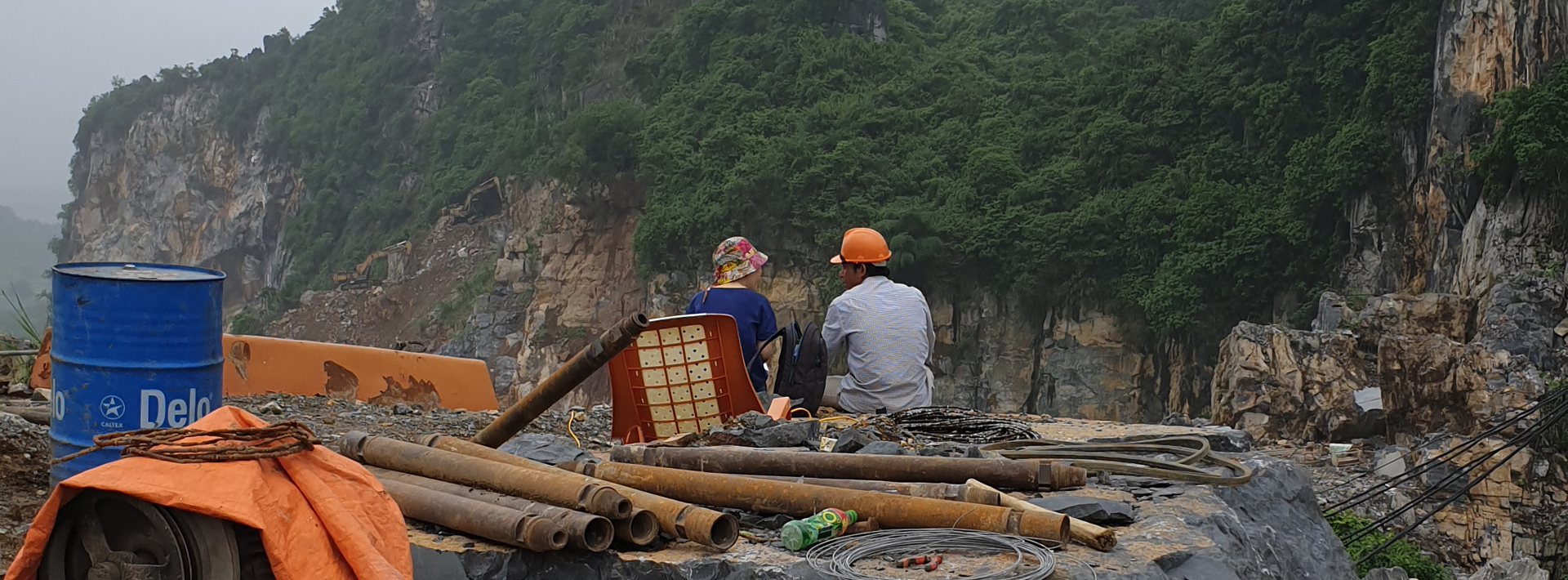News
If you really want to understand your supply chain, you have to dig deep. That means stepping beyond your direct commercial relationships and wading into the lower tiers of manufacturing and raw materials extraction. It’s time-consuming and resource-heavy, but it’s essential for businesses to embrace ethical standards. You get a much better sense of the challenges that the sector faces. It also helps to open up conversations.
At Marshalls, we’ve been visiting our natural stone supply chains since 2005. Recently, our work has been expanding to reflect not only our diversifying product ranges but also global legislation and market expectations.
Today I’m looking at one region, China, and two contrasting products that are sold by businesses within our Group: high tech solar panels and natural stone. For each business, our strategy follows three core principles: setting expectations that working conditions meet approved standards, developing greater transparency and traceability, and commissioning independent assessments through third-party social audits.
Solar
Our photovoltaic company, Viridian Solar, joined Marshalls as part of Marley group in 2022. Viridian Solar has always had strong relationships with its direct suppliers in China, regularly visiting the top two tiers of its supply chain. But since 2023, we’ve been venturing into lesser-known territory –visiting multiple stages of production, from the point where the raw polysilicon is processed to when it is ground into powder and further purified. We’ve also watched the purified material being melted into long ingots before being finely sliced into wafers - the main component of the cells that go into solar panels.
Through visits and relationship building, we’ve achieved detailed supply chain mapping, building up a comprehensive understanding of supplier locations. This work has enabled us to set sourcing agreements with suppliers: as of early 2025, polysilicon entering our supply chain can only come via agreed locations in the top six tiers of production. We will continue to extend our knowledge of raw materials suppliers this year.
Independent verification of this process is the next step on our transparency journey. As members of the Solar Stewardship Initiative, a pan-European collaboration to create more responsible, transparent and sustainable supply chains, we’ve been supporting the development of internationally recognised ESG and traceability standards that are specifically tailored to the sector.
That work has been happening alongside other ethical activities: in January 2025, we completed our independent SA8000 social audit programme for the first two tiers of our polysilicon supply chain.
Natural stone
In 2024, we started a new ethical partnership with European NGO XertifiX, kicking off a pilot of independent third-party audits in our Chinese natural stone sector.
XertifiX runs a certification scheme tailored to the natural stone sector in Asia. Locations take part in a five-year improvement programme and are visited by human rights experts who conduct audits and make recommendations, following an incremental improvement template.
We chose XertifiX not only because it aligns with EU legislation but also because it tracks a product’s journey, visiting locations at every stage of the process from the quarry to the manufacturing site. XertifiX auditors will also make unannounced visits to suppliers in line with international best practices.
Our pilot with XertifiX started in November 2024, and we have so far made seven initial visits, covering four quarries and three factories. No major issues have been found, and we will now be engaging with the suppliers as part of a longer-term improvement programme. We hope to cover our major stone ranges in China by the end of 2025.
Conclusion
With the UK’s Procurement Act now in force, it’s becoming more important than ever for companies to evidence the ethical steps that they are taking to support suppliers. At Marshalls, we’re continuing our journey. Our approach is evolving as we deepen our understanding of the challenges and possibilities around us.



